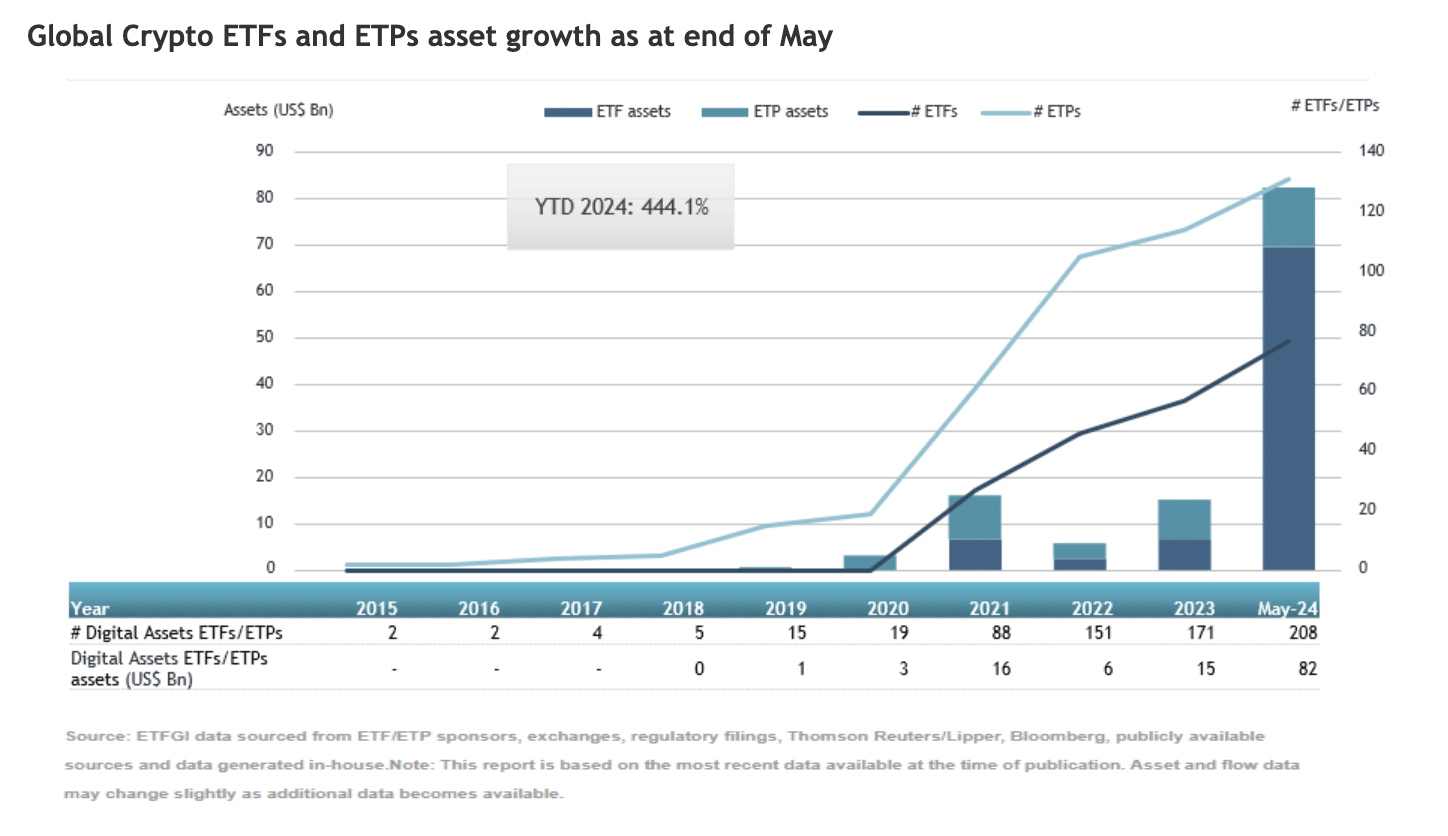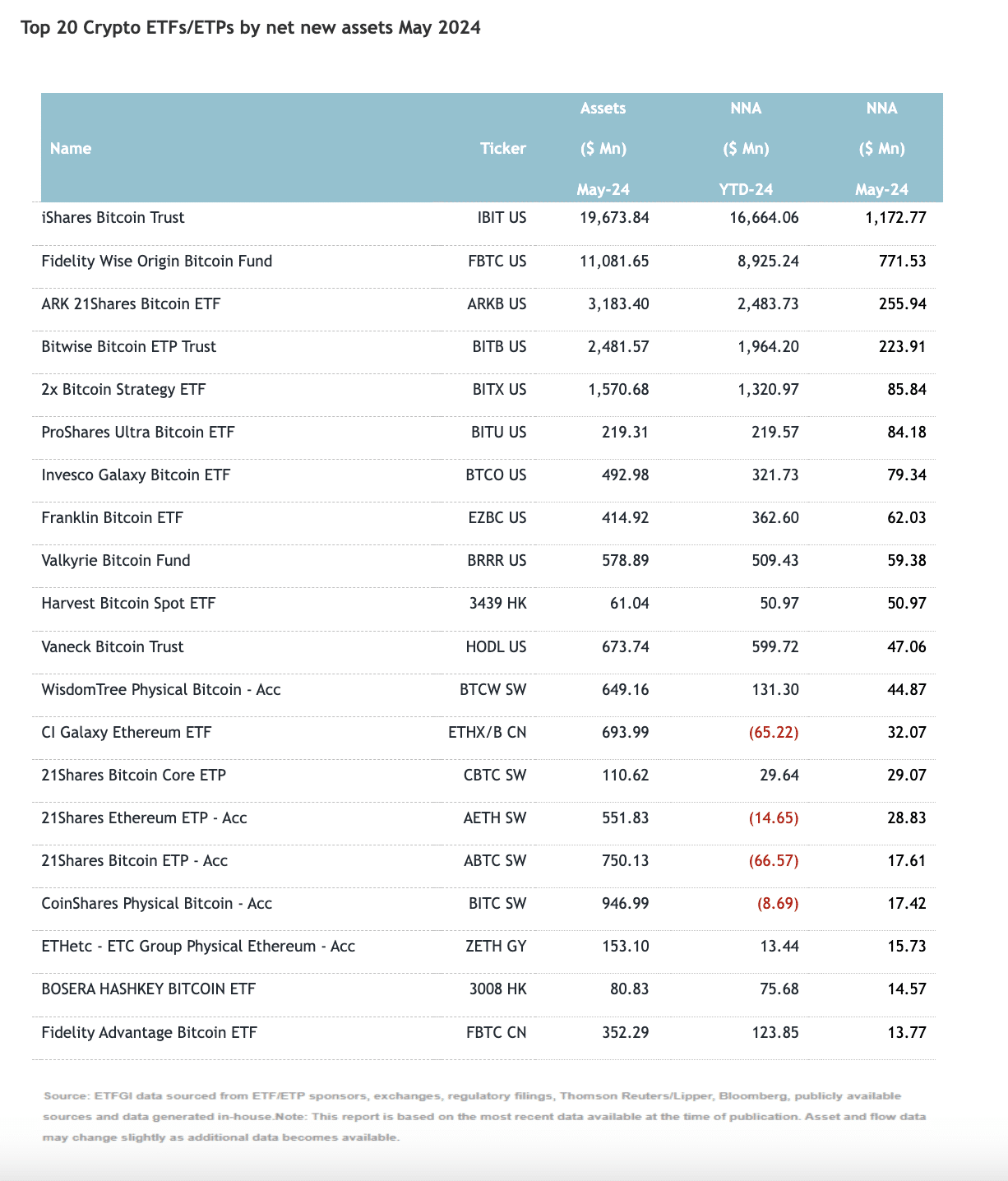Net inflows for listed cryptocurrency ETFs and ETPs reached a record-breaking $44.50 billion year to date as of the end of May, reports ETFGI, a leading independent research and consultancy firm.
Key Highlights
ETFGI identified these key metrics from its report:
•May 2024 Net Inflows: $2.23 billion
•Year-to-Date Net Inflows: $44.50 billion (highest on record)
•2021 YTD Net Inflows: $3.72 billion
•2022 YTD Net Inflows: $787.51 million
•Total Assets: $82.27 billion in crypto ETFs and ETPs globally as of the end of May, slightly down from the $84.69 billion record set in March 2024.
Market Context
The surge in inflows into crypto ETFs comes amid strong performance in broader financial markets. In May 2024, the S&P 500 index rose by 4.96%, contributing to an 11.30% increase year-to-date.
Developed markets, excluding the U.S., grew by 3.62% in May and are up 6.09% for the year. Norway and Portugal led the developed markets with increases of 10.84% and 8.72%, respectively. Emerging markets saw a 1.17% increase in May and a 4.97% rise year-to-date, with Egypt and the Czech Republic showing the most significant gains, at 11.82% and 9.44%, respectively.
The global Crypto ETFs and ETPs industry had 208 products, with 551 listings that have total assets of $82.27 billion, from 47 providers listed on 20 exchanges in 16 countries. Assets invested in Crypto ETFs/ETPs listed globally increased by 16.7% from $70.47 billion at the end of April 2024 to $82.27 billion at the end of May 2024.

The top 20 ETFs/ETPs account for a substantial portion of the inflows to these products. The fund with the largest individual inflow was iShares Bitcoin Trust (IBIT US), with $1.17 billion in May.

Analysis and Implications for Advisors
The significant inflows into crypto ETFs highlight a growing investor appetite for exposure to digital assets. This trend suggests a shift in market sentiment and a potential reallocation of assets towards cryptocurrency-related investments. Financial advisors should consider the following:
1. Investor Education: As interest in crypto ETFs grows, it’s crucial to educate clients on the risks and opportunities associated with digital assets.
2. Portfolio Diversification: The record inflows into crypto ETFs suggest that these assets are becoming a more integral part of diversified portfolios. Advisors should assess the appropriate level of exposure for each client based on their risk tolerance and investment goals.
3. Market Trends: Keeping abreast of broader market movements, such as those in the S&P 500 and emerging markets, can provide valuable context for advising clients on crypto investments.
4. Regulatory Landscape: Stay informed about the evolving regulatory environment surrounding cryptocurrencies, as this can impact the performance and viability of crypto ETFs.







